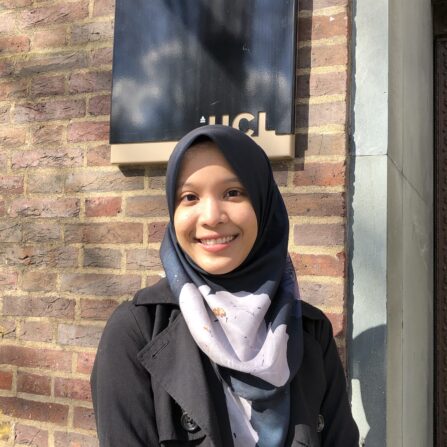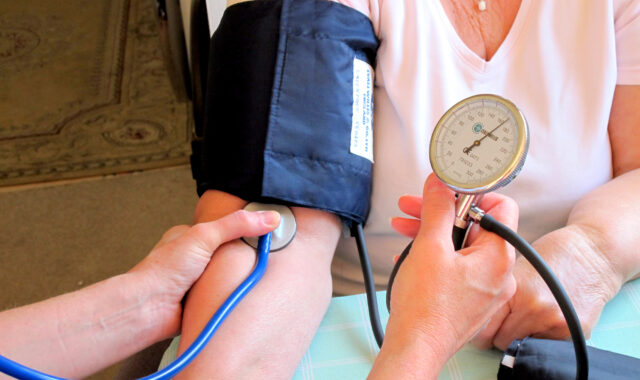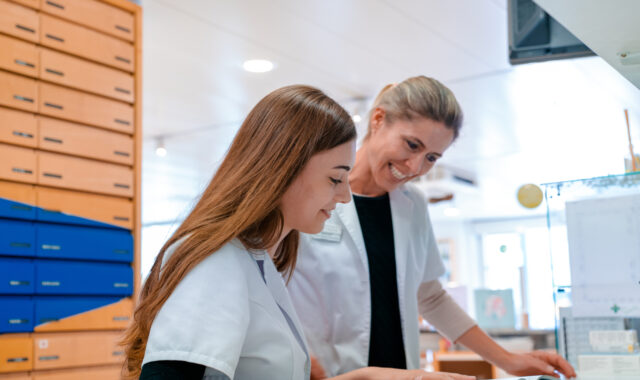
Intan A.
Master’s Degree in Pharmacy (MPharm)Which university are you studying at?
University College London.
What subjects and qualifications did you take at school or college (e.g. A Levels, IB, BTECs, EPQ)?
I took the Cambridge International A-level in Malaysia before flying to the UK.
AS-level – Biology, Mathematics, Chemistry and Physics (AAAA)
A-level – Biology, Mathematics, Chemistry (A*A*A*)
Why did you decide to pursue this degree at university?
I have always loved Chemistry and Biology. They have been my favourite subjects since high school. Back in college, my top choices for my degree were Medicine and Pharmacy. It was really hard for me to decide which of those two courses would best suit me. But when I discovered MPharm course offers a wider range of career choices, I decided to pursue that path.
What does an average day or week at university look like for you (e.g. lectures, practicals, independent study, other interests)?
For the MPharm course, we have quite a lot of practicals. These practicals include synthesising medicines such as Aspirin and Paracetamol. During my first year, there were quite a lot of lectures. We have lectures on most days, from morning to noon. Then, we have practicals or workshops in the afternoon. As you proceed to the second and third years, the number of lectures decreases so we can have more time for independent study. My favourite day of the week is Wednesday since Wednesday afternoons are always left empty from any lectures and practicals so that we can take part in club and society events.
What aspect of your course do you most enjoy?
My favourite module in the MPharm course is Pharmaceutics. This module teaches us about how tablets or capsules are made, and the chemistry behind them. My favourite part of this module is learning about the technologies which are used nowadays to ease drug administration in patients. For instance, if a drug tastes horrible and patients are less likely to take these medicines, we learn if it is possible to invent other formulations such as patches or injections to increase patients’ adherence.
What do you find most challenging about your degree?
The greatest challenge I have faced throughout this course is to always ensure my knowledge is up to date. For instance, medicines have their own categories. There are some medicines which can be purchased without a prescription and some which need prescriptions from doctors. The lists of medicines in each of these categories keep changing every year. Hence, as a future pharmacist, you are always required to know which medicines fall in each of these categories. Supplying a prescription-only medicine to patients without a valid prescription is against the law.
What are your aspirations after your degree?
My plan after graduation is to become a hospital pharmacist. I look forward to working alongside other medical professionals to deliver better care to patients. Working in a hospital has always been my dream since hospital pharmacists are able to work in different departments within the hospital. Each department has a different experience and knowledge to offer and I look forward to working in each of them. I think that would be a good start to discover my own passion and interest as I make progress in my career.
What would be your top piece of advice for anyone wanting to study pharmacy?
Pharmacy is quite a demanding course. If you plan on taking pharmacy, my piece of advice would be to ensure you have the passion in pharmacy and the subjects relating to it. As long as you have the passion, it makes it easy for you to find motivation to progress throughout the course no matter how challenging things get. However, do not let the difficulty of the course demotivate you. Personally for me, once you are ready to put in the right amount of effort, you will enjoy the whole experience MPharm has to offer!





Comments